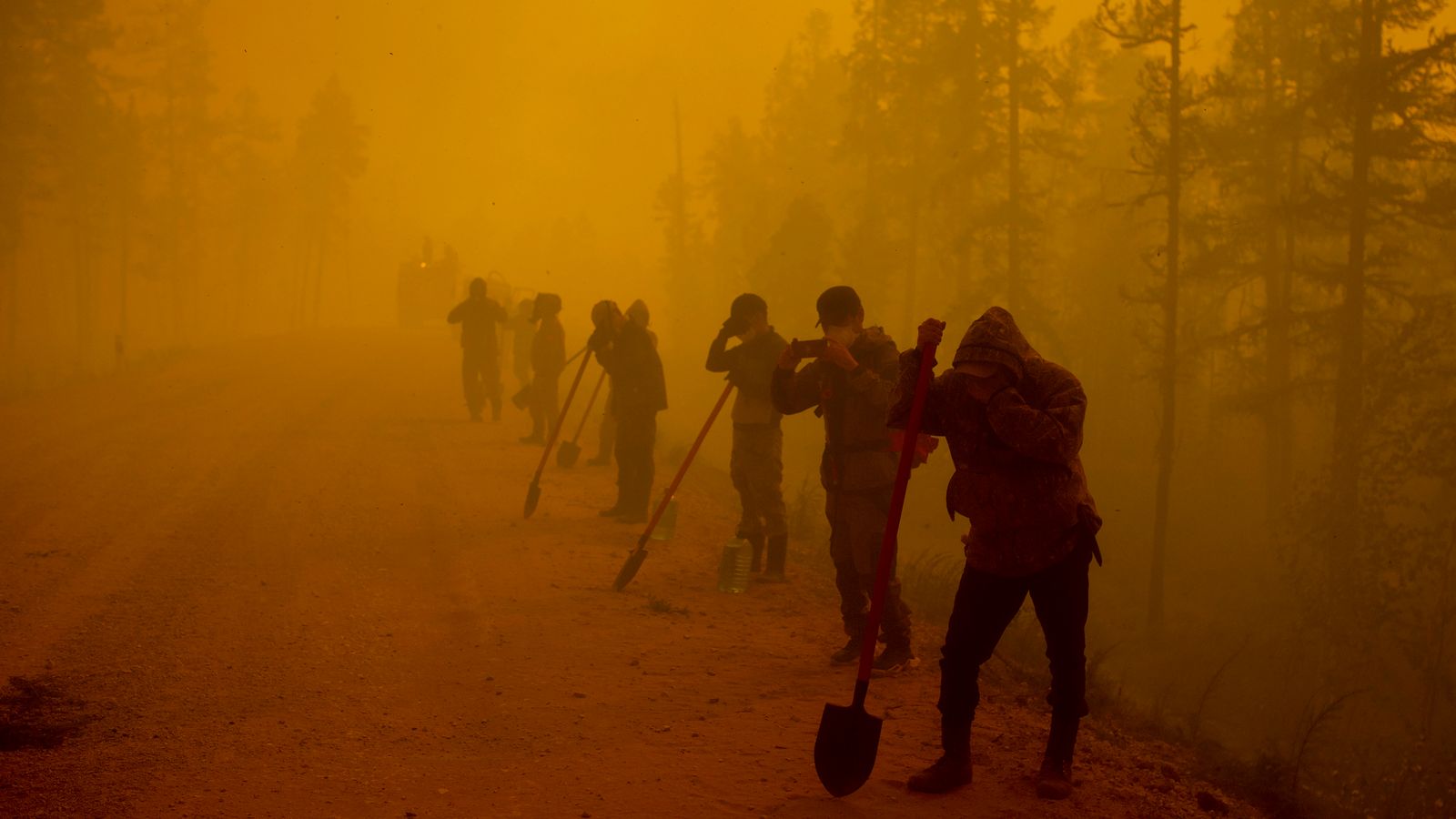Wildfires have produced a record amount of carbon emissions in some parts of the world this year, according to the European Union’s Copernicus Atmosphere Monitoring Service.
Fires in the western US, Siberia, and Turkey were among those that the service described as proof that climate change is fanning blazes of unusual intensity.
Yakutia, in northeastern Siberia, produced its highest CO2 emissions from wildfires since 2003, and in western Siberia a huge number of fires emitted daily CO2 counts that were far above average.
Fires in the west of the US emitted around 83 million tonnes of CO2, with California’s Dixie Fire being the largest in the state’s history.
Please use Chrome browser for a more accessible video player
Also, thousands of people had to flee their homes due to intense summer fires in Greece and Turkey, with health concerns also prompted by the deteriorating air quality.
Some 1.76 billion tonnes of carbon were emitted by fires globally during the year – more than double the annual CO2 emissions from all sources in Germany.
Senior Copernicus scientist Mark Parrington said: “We have seen extensive regions experience intense and prolonged wildfire activity.
Climate change: Boris Johnson sent letter urging him to withdraw £867m funding for Mozambique fossil fuel project
Farmers to be paid to look after soil – as charities say plans for sustainable land break Brexit promises
ClimateCast: Climate in the classroom
“Drier and hotter regional conditions under a changing climate have increased the risk of flammability and fire risk of vegetation.”
Subscribe to ClimateCast on Spotify, Apple Podcasts, or Spreaker
The wildfire emissions total was not the highest since the service began monitoring in 2003, but such emissions are likely to increase as the effect of climate change is revealed, he said.






















